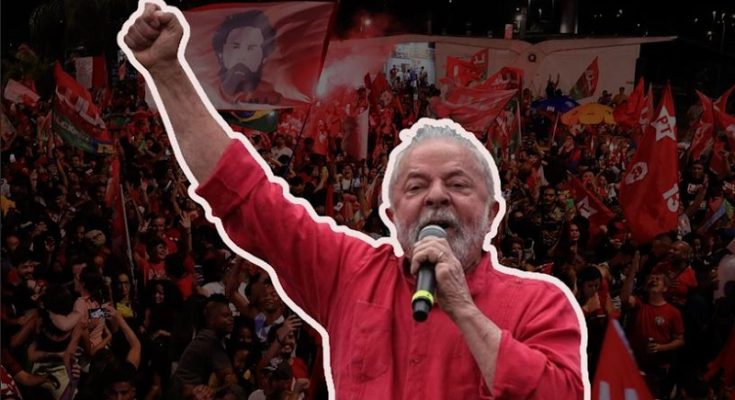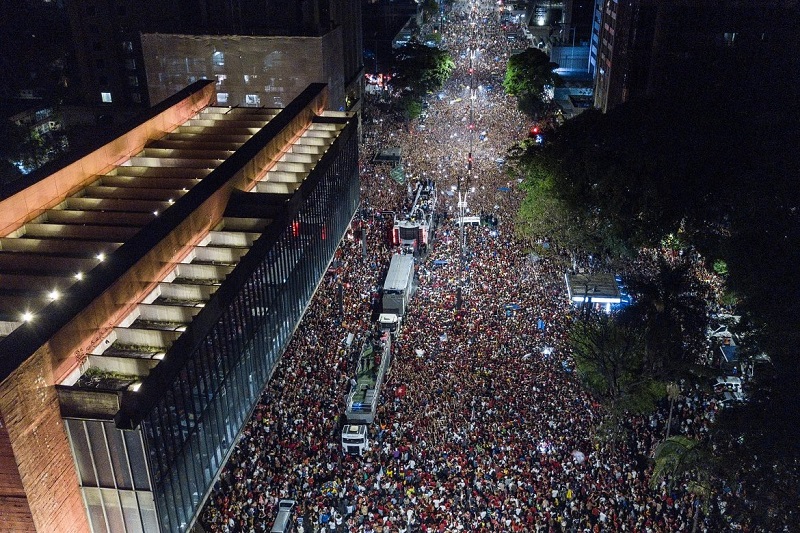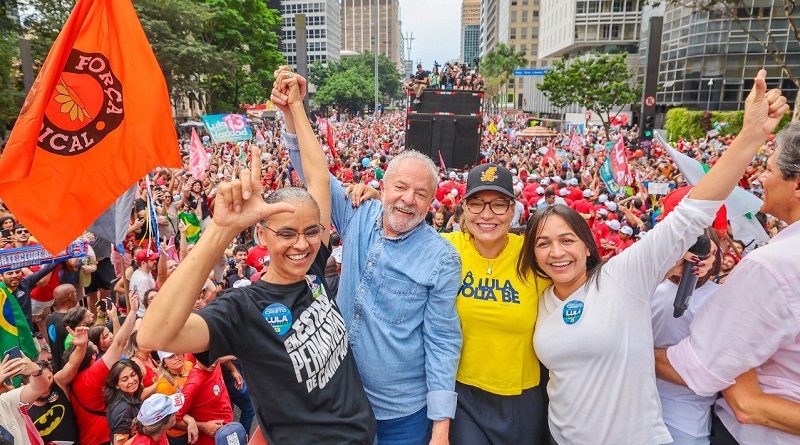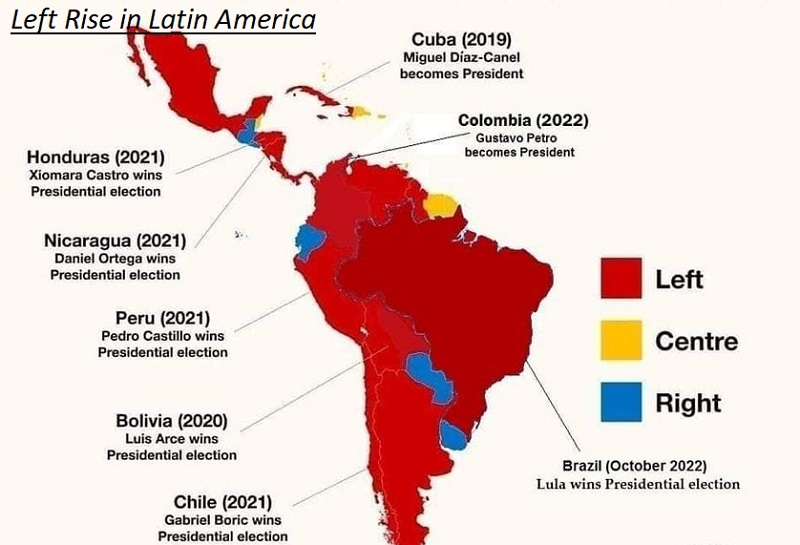By Riddhi
Last Sunday, Brazil saw a return of Luiz Inácio “Lula” da Silva, popularly known as Lula, from the leftist ‘Workers’ Party’ in the general elections of the country.
Lula, who has served as the Brazilian president for two terms before, defeated the incumbent president Jair Bolsonaro of the conservative ‘Liberal Party’ to become the first ever three-time democratically elected president of Brazil.
Lula hails from a humble working class background and is a trade unionist himself. Born into a family of sharecropping farmers, Lula spent his childhood doing odd jobs as a shoe-shiner and a street vendor.
At the young age of 14, he was formally employed at a warehouse for the first time.

Humble background
At age 19, Lula himself suffered an industrial accident while working as a press operator in an automobile parts factory, and lost the little finger of his left hand.
At the time, he had to run to several hospitals and suffer extreme delays in receiving medical attention for his injury.
Such personal experiences with various forms of violence on working people at the hands of capitalist institutions motivated him towards unionisation among workers.
Later in his youth, while he worked as a metalworker himself, he was elected the President of Steel Workers’ Union in 1975.
This brought him national attention as he led a movement for wage increase. Subsequently, Lula founded the Workers’ Party, and entered electoral politics. Lula is the first Brazilian president to come from a worker background and has had no formal higher education.
During the recently concluded elections, Lula promised the people of Brazil that he aims to achieve net-zero deforestation, stop illegal mining, and increase environmental protections.
Defeating Bolsonaro is not an end
Post victory, Lula has made a series of promises directly aimed at improving the lives of the poor.
He said that his foremost priorities will be eradicating hunger, providing affordable housing, and reaching electricity and water to even the most far flung parts of the country. In addition Lula has also promised infrastructure development and tax reform in Brazil.
Bolsonaro came to power in 2018 on a populist campaign. He became infamous for his outright misogyny, homophobia, and authoritarian tendencies, which were often reflected in his government’s policy decisions for the country over the last four years.
During his term, Bolsonaro was heavily criticized for his unwavering support to big businesses by establishing policies in their favour and promoting privatization across diverse sectors in Brazil.
He also received worldwide criticism for his abysmal response to the Covid-19 epidemic which led to the deaths of almost 700,000 Brazilians, and his complete disregard for environmental concerns which have had a hazardous impact on Brazil’s Amazon forests.
During his term, Brazil witnessed uncontrolled inflation, rising poverty, and fiscal mismanagement.
Under Bolsonaro, Brazil has also seen a resurgence of the far-right, with rising memberships within far-right organisations in the country.
Crucial victory
Lula’s victory is certainly a crucial win for the left in Latin America and the rest of the world.
Many have heralded the return of Brazil’s leftist Workers’ Party and their former trade unionist leader as a remarkable comeback for the political left.
It is expected that their government will work in favour of the ordinary working people of Brazil.
For one, Lula’s campaign was centred around very fundamental issues of access to food, affordable housing and livelihoods, which have been a struggle for many Brazilians over the last few years.
Moreover, Brazilians’ rejection of Bolsonaro’s far-right politics last week, contributes towards the broader trends favouring the left, which are being observed all over Latin America.
Commonly termed as the ‘Pink Tide’, this shift towards ‘left-of-centre’ or ‘left-leaning’ governments over the last few years has led to a political turn in most of Latin America.
Brazil is the latest to join Latin American countries such like Mexico, Argentina, Bolivia, Peru, Honduras, Chile and Columbia, all of which now have left-leaning governments.
Embrace of the Left vs. Rejection of the Right
However, to believe that this is an absolute win for the left would be a folly. One cannot expect any immediate or radical transformation in Brazil after Lula begins his third presidential term early next year.
It must be noted that even despite the huge turnout of Lula’s supporters, his victory in these presidential elections was with a very narrow margin.
Lula received 50.90% votes, while Bolsonaro received 49.10% votes. This shows that even now, almost half of Brazil has continued to embrace Bolsonaro and his right-wing populist politics.
Moreover, despite Lula’s win, Brazilian congress continues to have significant pro-Bolsonaro legislators, which will challenge Lula’s governance at every step.
Furthermore, it must be noted that despite Lula’s background in left politics and his extensive work with trade unions, even during his previous terms Lula had courted business leaders, and had taken a somewhat moderate approach towards the powerful economic players.
Based on his previous terms in office, Lula already has a reputation of being fiscally moderate, and a ‘pragmatic’ leftist at best.
Lula is due to begin his third Presidential term on 1st January 2023. The world will be watching with bated breath, as he takes on the mighty challenge of rescuing ordinary Brazilians from their torment over the last four years.
Subscribe to support Workers Unity – Click Here
(Workers can follow Unity’s Facebook, Twitter and YouTube. Click here to subscribe to the Telegram channel. Download the app for easy and direct reading on mobile.)






